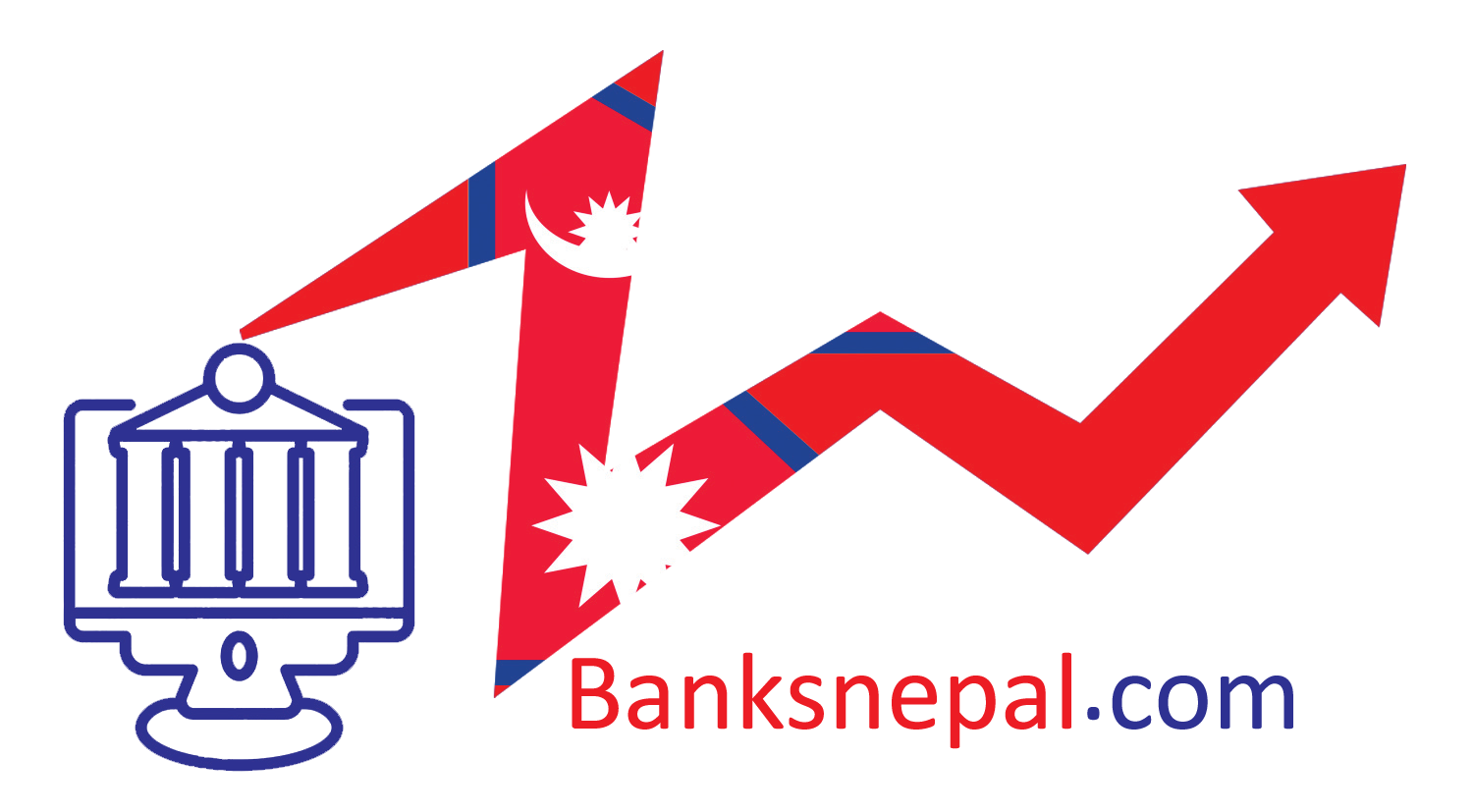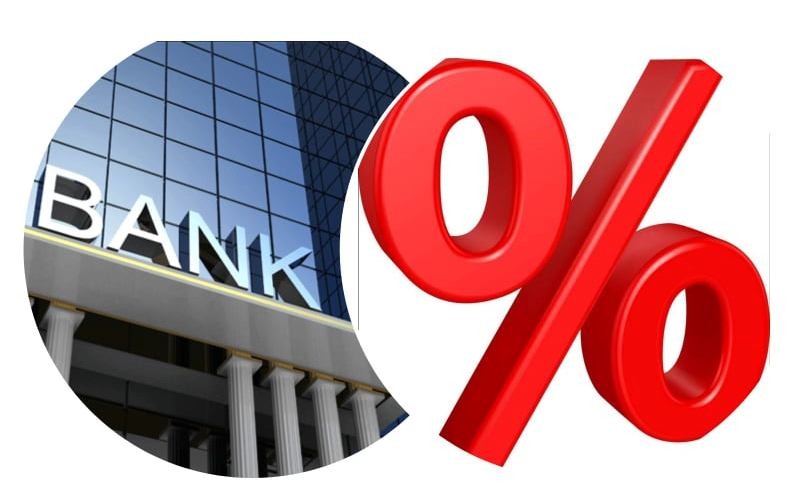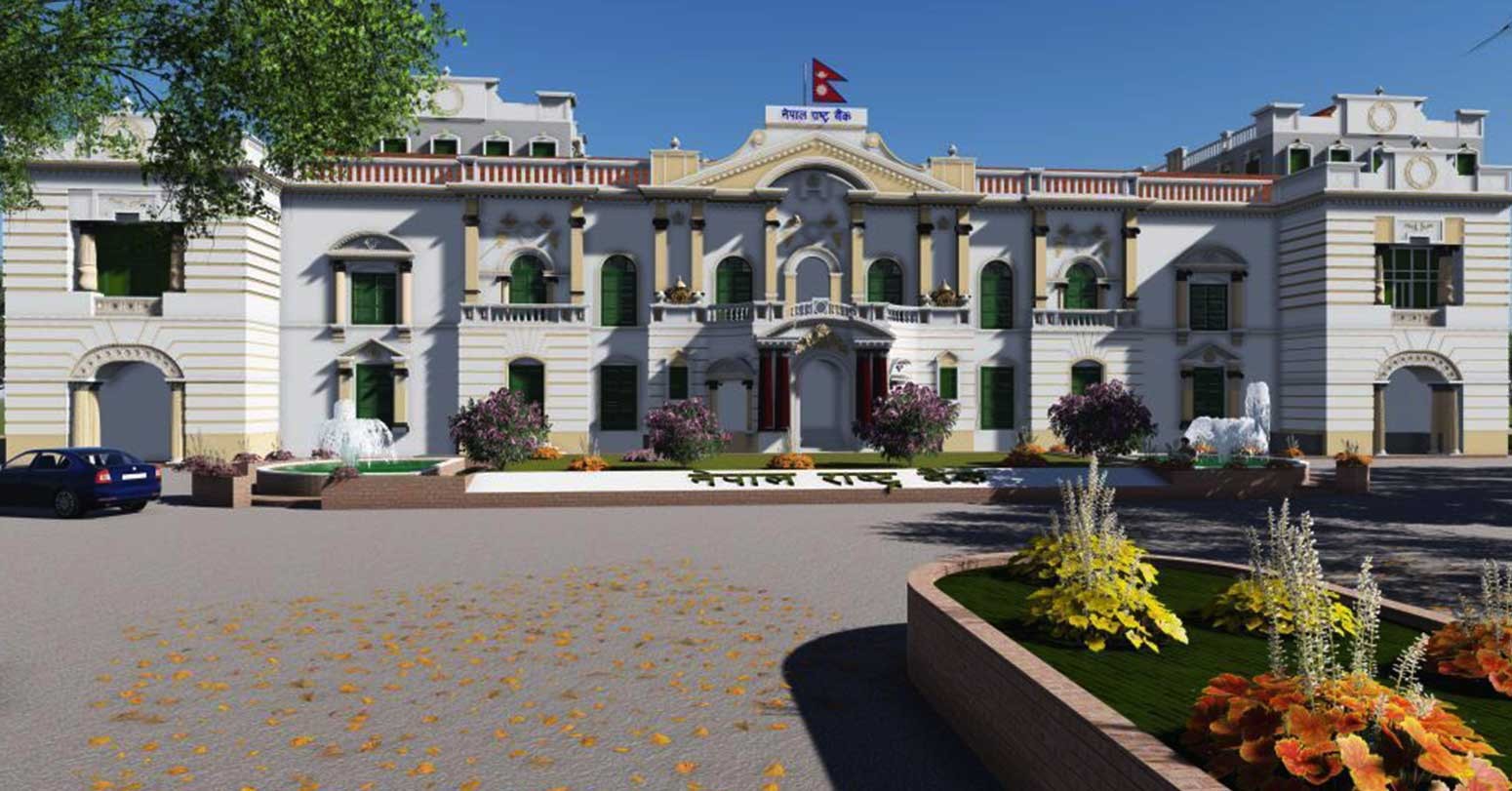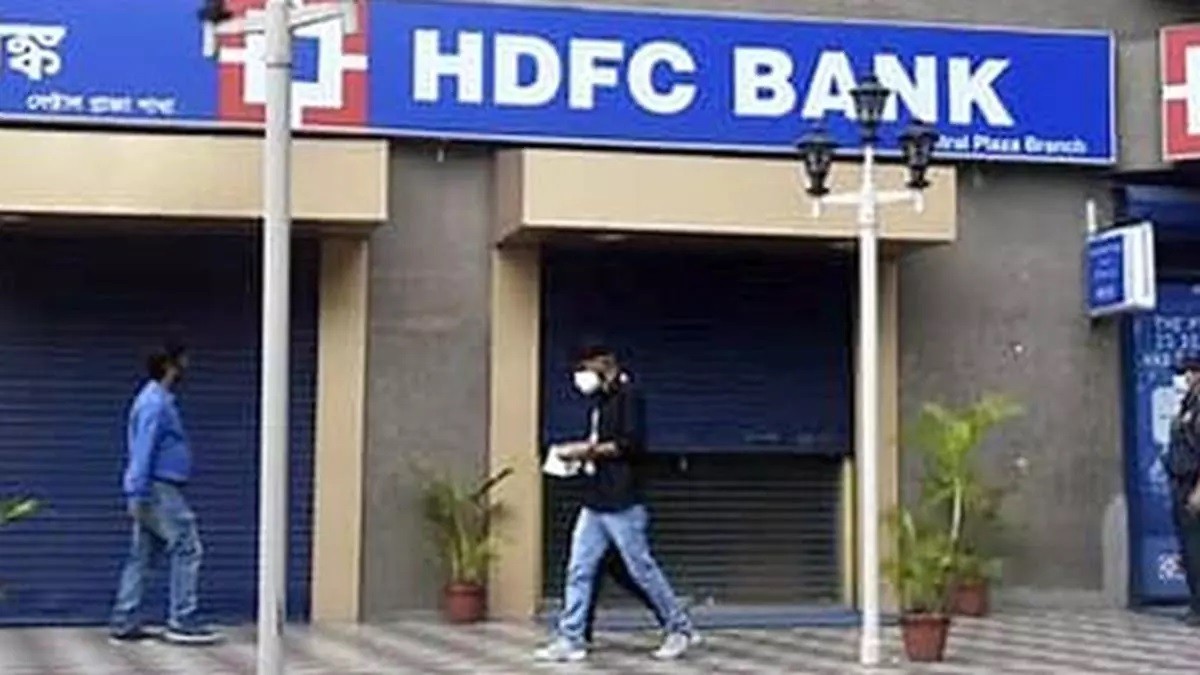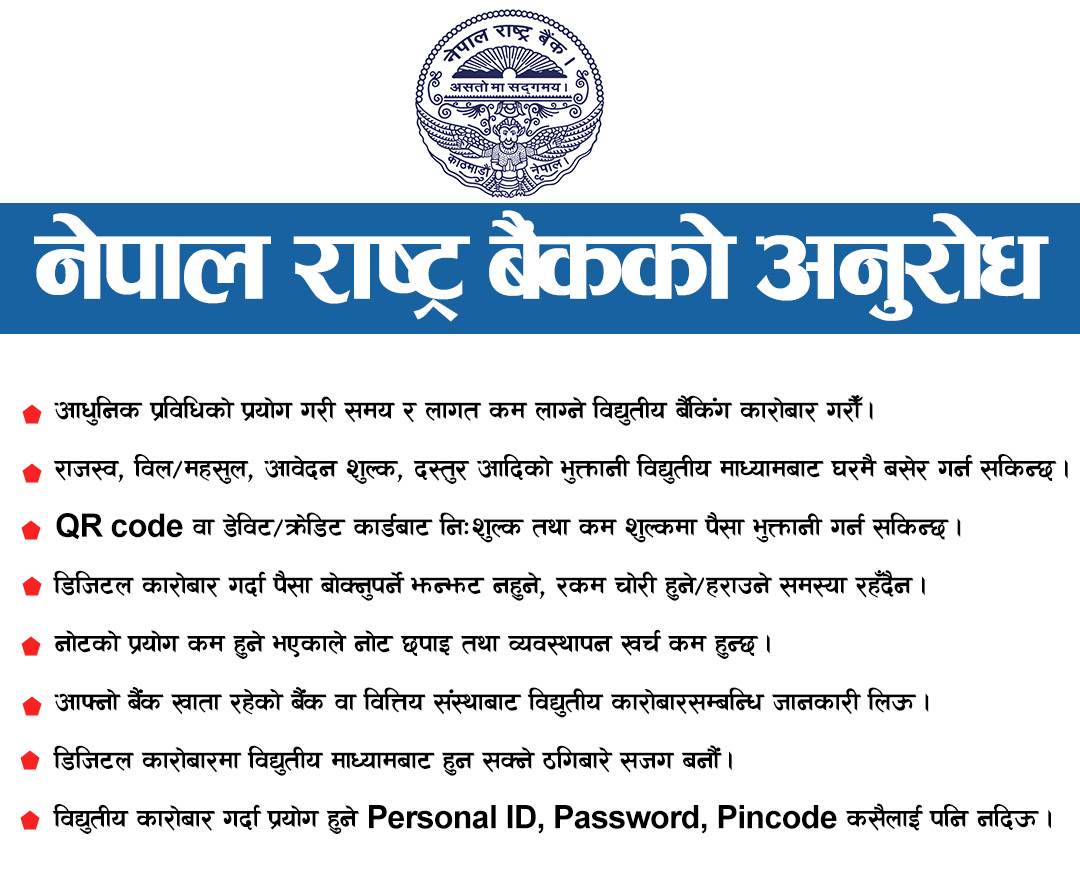
Kathmandu. Nepal Rastra Bank (NRB) has issued instructions on the provisions to be implemented by banks and financial institutions for the implementation of monetary policy. As per the directive, banks and financial institutions have to implement various prescribed provisions as per the policy declaration.
Provision has been made to extend the grace period of 1 year for loans to the worst affected areas, 9 months till mid-April and 6 months for loans to the least affected areas from mid-December.
However, in the case of tourist hotels approved by the concerned body, the grace period can be extended for a maximum of two years.
The interest for the added grace period will have to be paid in at least 3 installments within the grace period without capitalization.
Arrangements will have to be made to collect the outstanding principal and interest amount of the extended loan till mid-July 2077 BS in at least 2 installments, 3 installments and 4 installments respectively within the extended period of repayment period.
Banks and financial institutions are not allowed to charge any kind of penalty interest, fee, compensation, interest to the debtor who pays as per the prescribed schedule.
A) Highly affected area
1. Tourism
(A) Trekking, Travel Agency, Mountaineering, Rafting, Camping, Tour Operator, Healing Center, Casino, Massage Spa, etc., (b) Hotels, Tourist Accommodation, Motel, Rural Tourism, Home Stay, Resort, and Restaurant, Environmental Tourism, Wildlife Sanctuary, (c) Adventure Tourism: Skiing, Gliding, Water Rafting, Hot Air Ballooning, Canoeing, Parasailing, Horse Climbing, Elephant Climbing, Bungee Jumping, Mountaineering and Observation, (d) Golf Course, Polo, Pony Track, Mountain light operation, cable car only
2. Air and tourist transport
3. Amusement, amusement park, recreation business, party palace
4. Film production, distribution, cinema solution
5. Workers who have lost their jobs or are stranded (at home or abroad)
6. Basically perishable commodities such as vegetables, fruits, flowers, fish, meat, grains, milk and milk products, eggs etc.
7. Poultry business
8. Livestock, bee and fishery business
9. Readymade garments, handicrafts and skill based business
10. Foreign Employment Service Provider, Educational Counseling Service Provider
B) Moderately affected area
1. Industry business related to production and sale of consumables such as plastic, iron / steel, tires, leather, metal products, home appliances etc.
2. Private and residential schools, higher education and secondary schools, colleges and universities, technical schools, preschool, child care
3. Passenger site traffic
4. Social and personal service activities including beauty parlor, salon, cosmetic surgery
5. Legal, accounting, engineering and other consulting services or business
6. Hospital, Clinic, Nursing Home, Diagnostic Center
7. Health center or fitness center
8. Production, processing and sale distribution of stored goods (except food)
9. Forest and mineral industries
10. Construction business
11. Drug production
12. Printing, publishing and communication house
13. Hydropower under construction and renewable energy
14. Business related to stone, clay and glass production
E) Low affected area
1. Hydropower projects connected to national transmission while in production
2. Businesses involved in online (ecommerce)
3. Industries producing, processing, storing and distributing food, processing and selling beverages
4. Sales and distribution of daily necessities
5. Imported trade
6. Business related to petrol pump, gas and water
7. Drug sales distribution
8. Advertising service
9. Internet, telecommunications service provider company
10. Wine and tobacco industry trade, business
11. Trucking, transportation business
12. Gold, silver jewelry and precious stones business.
